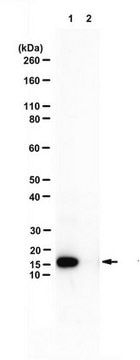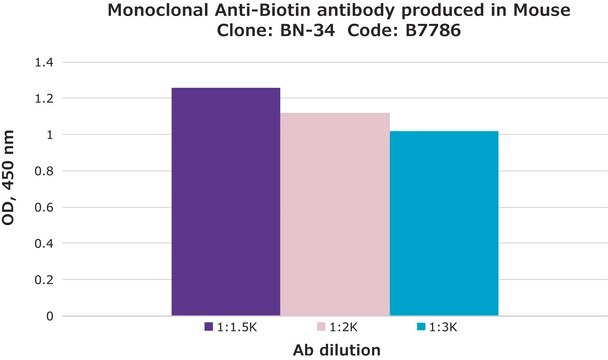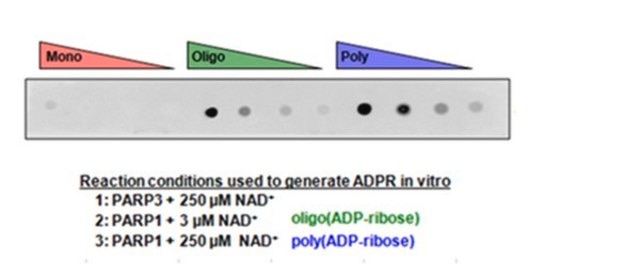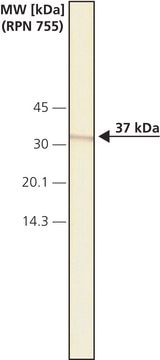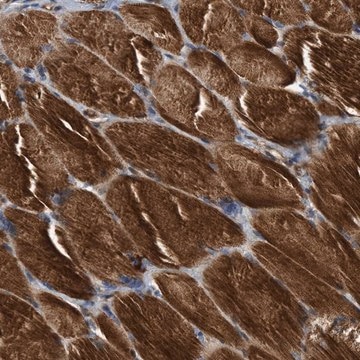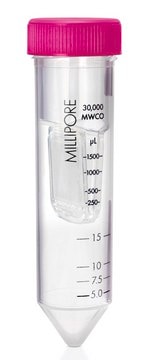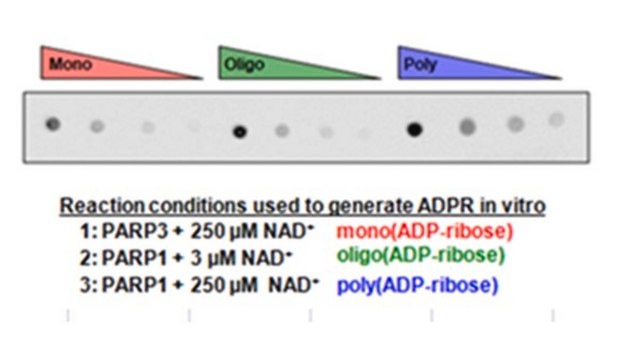General description
We are committed to bringing you greener alternative products, which adhere to one or more of The 12 Principles of Green Chemistry.This antibody is Preservative-free, produced without the harm or sacrifice of animals and exceptionally stable to allow for ambient shipping and storage if needed and thus aligns with "Waste Prevention", "Designing Safer Chemicals" and "Design for Energy Efficiency".
Click here for more information.
ZooMAb® antibodies represent an entirely new generation of recombinant monoclonal antibodies.Each ZooMAb® antibody is manufactured using our proprietary recombinant expression system, purified to homogeneity, and precisely dispensed to produce robust and highly reproducible lot-to-lot consistency. Only top-performing clones are released for use by researchers. Each antibody is validated for high specificity and affinity across multiple applications, including its most commonly used application. ZooMAb® antibodies are reliably available and ready to ship when you need them.
Specificity
Clone 1B21 is a ZooMAb® Rabbit recombinant monoclonal antibody that specifically detects Capsid protein in Bacteriophage MS2.
Immunogen
His-tagged full-length recombinant Bacteriophage MS2.
Application
Quality Control Testing
Evaluated by Western Blotting in lysates from K562 cells spiked with Bacteriophage MS2.
Western Blotting Analysis (WB): A 1:1,000 dilution of this antibody detected Bacteriophage MS2 in lysates from K562 cells spiked with MS2, but not in unspiked lysates.
Tested applications
Affinity Binding Assay: A representative lot of this antibody bound Bacteriophage MS2 with a KD of 3.2 x 10-7 in an affinity binding assay.
ELISA Analysis: 3 μg/mL from a representative lot detected Bacteriophage MS2 in ELISA.
Note: Actual optimal working dilutions must be determined by end user as specimens, and experimental conditions may vary with the end user
Anti-Bacteriophage MS2, clone 1B21 ZooMAb®, Cat. No. ZRB2123, is a recombinant Rabbit monoclonal antibody that detects Bacteriophage MS2 and is tested for use in Affinity Binding Assay, ELISA, and Western Blotting.
Target description
Capsid protein (UniProt: P03612; also known as CP, Coat protein) is encoded by the Cp gene (Gene ID; 1260899) in Enterobacteria phage MS2. MS2 is a small RNA bacteriophage that infects E. coli and other members of the Enterobacteriaceae family. Its genome consists of a single sense (+) strand of RNA 3569 nucleotides in length, which encodes only four proteins: the coat protein, the A or maturation protein that is required for infectivity, a subunit of the viral replicase, and a small lysis protein encoded in an overlapping reading frame. The capsid protein acts as a translational repressor of viral replicase synthesis late in infection. This latter function is the result of capsid protein interaction with an RNA hairpin which contains the replicase ribosome-binding site. Capsid protein self-assembles to form an icosahedral capsid with a T=3 symmetry that is about 26 nm in diameter and consists of 89 capsid proteins dimers (178 capsid proteins). Capsid protein is shown to be a homodimer that can form dimers that assemble by group of 5. Twelve such pentamers are linked together with free dimers. The homodimers bind to the viral RNA via an operator hairpin. It also binds to many other RNA sequences in the viral genome and this interaction probably shifts the virus from the replicative to the assembly phase and ensures specific encapsidation of the viral genome. This ZooMAb® recombinant monoclonal antibody, generated by our propriety technology, offers significantly enhanced specificity, affinity, reproducibility, and stability over conventional monoclonals. (Ref.: Golmohammadi, R., et al. (1993). J. Mol. Biol. 234(3); 620-639).
Physical form
Purified recombinant rabbit monoclonal antibody IgG, lyophilized in PBS with 5% Trehalose, normal appearance a coarse or translucent resin. The PBS/trehalose components in the ZooMAb® formulation can have the appearance of a semi-solid (bead like gel) after lyophilization. This is a normal phenomenon. Please follow the recommended reconstitution procedure in the data sheet to dissolve the semi-solid, bead-like, gel-appearing material. The resulting antibody solution is completely stable and functional as proven by full functional testing. Contains no biocide or preservatives, such as azide, or any animal by-products. Larger pack sizes provided as multiples of 25 μL.
Reconstitution
30 μg/mL after reconstitution at 25 μL per vial. Please refer to guidance on suggested starting dilutions and/or titers per application and sample type.
Storage and Stability
Recommend storage of lyophilized product at 2-8°C; Before reconstitution, micro-centrifuge vials briefly to spin down material to bottom of the vial; Reconstitute each vial by adding 25 μL of filtered lab grade water or PBS; Reconstituted antibodies can be stored at 2-8°C, or -20°C for long term storage. Avoid repeated freeze-thaws.
Legal Information
ZooMAb is a registered trademark of Merck KGaA, Darmstadt, Germany
Disclaimer
Unless otherwise stated in our catalog or other company documentation accompanying the product(s), our products are intended for research use only and are not to be used for any other purpose, which includes but is not limited to, unauthorized commercial uses, in vitro diagnostic uses, ex vivo or in vivo therapeutic uses or any type of consumption or application to humans or animals.

